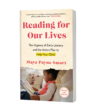Spelling is crucial for reading and writing. Still, spelling instruction limps along in the 21st century as “the abandoned stepchild in the family of language arts,” in the words of researchers R. Malatesha Joshi, Rebecca Treiman, Suzanne Carreker, and Louisa C. Moats. Despite evidence that spelling directly affects reading skill, it gets little time and attention in most American classrooms.
“Probably more than any other school subject, teacher intervention and influence on the spelling abilities of their students is currently negligible,” says language and literacy professor Misty Andoniou. “We are far more inclined to test spelling than to teach it.”
Parents: That means it may be up to us to focus on spelling. At the very least, it’s our job to find out what spelling instruction our children get at school, so we can respond. Checking homework folders and asking kids about in-school spelling is a start. But in lower elementary school, homework often has aims beyond its academic content. For example, my daughter’s first-grade teacher kept the homework content light. Its purpose was to instill good work habits—putting backpacks in a designated spot, checking homework folders nightly, and returning them to school each morning.
We parents need to talk to our children’s teachers to get a real feel for what they are teaching. Here are nine great questions to start the dialogue about spelling instruction:
1. What are your goals for spelling instruction in your classroom?
2. How much time do you devote to spelling in a typical week?
3. How do you choose spelling words?
4. Are spelling words selected for individuals, small groups, or the whole class?
5. How (and how frequently) do you assess and monitor students’ spelling?
6. How do you teach a spelling word or pattern?
7. How is my child’s spelling, relative to her peers and your grade-level expectations?
8. Can you show me samples of my child’s spelling and explain what the errors mean?
9. What should we do at home to support her spelling development?
There are no single right answers to any of these questions. Teachers can get good spelling results from a wide array of approaches. The key things to listen for, then, are the value the teacher places on spelling, their knowledge of spelling content, and their grasp of effective instruction methods.
You should be on high alert if your child’s teacher doesn’t teach spelling because they think kids will pick it up naturally through reading. Research doesn’t support this view. It’s also a problem if the teacher emphasizes memorizing individual words by copying them over and over again. Beware if a teacher’s spelling assessments just consist of marking words wrong. A good spelling teacher can explain the reasons behind spelling errors and address them in subsequent instruction.
Once you have a feel for what’s going on at school, you can better tailor spelling instruction at home to ensure that your children get what they need.
Pin Me for Reference 📌:

Sources and Further Resources
Joshi, R. M., R. Treiman, S. Carreker, and L. C. Moats, “How words cast their spell,” American Educator 32 (2008): 6–16.
English Language Arts Standards | Common Core State Standards Initiative, http://www.corestandards.org/ELA-Literacy/.
Texas Education Agency – 19 TAC Chapter 110, http://ritter.tea.state.tx.us/rules/tac/chapter110/index.html.
Graham, S. et al., “Teaching Spelling in the Primary Grades: A National Survey of Instructional Practices and Adaptations,” American Educational Research Journal 45 (2008): 796–825.
Doyle, A., J. Zhang, and C. Mattatall, “Spelling Instruction in the Primary Grades: Teachers’ Beliefs, Practices, and Concerns,” Reading Horizons 54 (2015): 1–34.
Adoniou, M., Spelling It Out: How Words Work and How to Teach Them (Cambridge University Press, 2016).
Puliatte, A. & Ehri, L. C. Do 2nd and 3rd grade teachers’ linguistic knowledge and instructional practices predict spelling gains in weaker spellers? Read. Writ. 31, 239–266 (2018).


